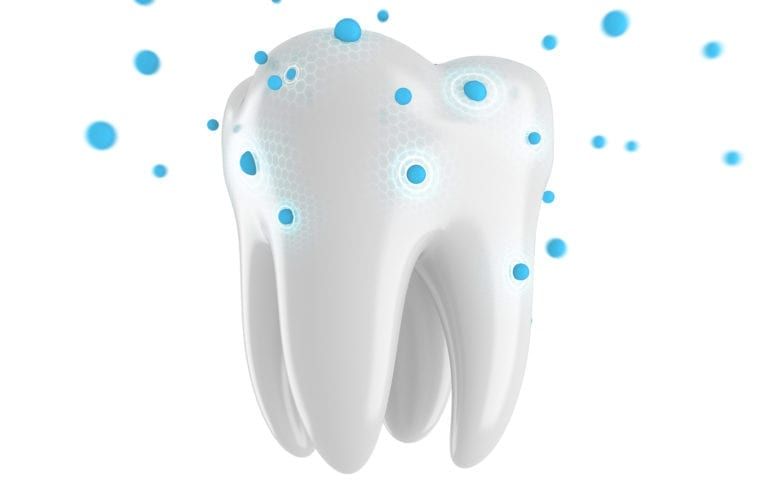As the outermost layer of our teeth, healthy enamel is essential for protecting our sensitive inner teeth and keeping our smile looking great. As enamel doesn’t contain living cells, it’s even more essential that we take proper care of it as it cannot heal on its own. Contrary to popular belief, however, minimal damage to the enamel can be repaired. Enamel that has been weakened by acid can be strengthened through a process called remineralization. This process can be encouraged through proper dietary changes and consistent oral hygiene practices.
What Can Cause Enamel Loss?
There’s a lot of reasons that enamel can be lost, with the most common one being poor dental hygiene and acid from the resultant bacteria. Some foods and drinks also contain high levels of acid that can accelerate the decay of dental enamel if proper hygiene isn’t kept up. Even without these, the normal daily wear and tear our teeth experience from eating and talking can play a role in the loss of enamel.
How Can I Tell That I’m Losing Enamel?
It’s possible to lose a small amount of enamel without actually noticing the problem. As you continue to lose enamel, however, it will begin to become incredibly apparent that it’s happening. There are a few noticeable signs you can watch out for that will warn you that enamel loss is happening, and it’s past time to do something about it.
- Dental discoloration, such as yellowing teeth
- Teeth that are becoming rounded or wearing down
- Sensitivity or pain in your teeth
Enamel loss is generally a gradual process, and if caught early enough, you may be able to stop, slow, or reverse the advance through remineralization.
What Is Remineralization?
As acid and erosion wear away at the enamel on our teeth, there is a process fighting to hold back the tide of loss. This process is known as remineralization and is, in part, driven by your saliva. Saliva contains minute amounts of phosphate and calcium and is capable of reversing minute amounts of damage done to your teeth. You can help in this process in a number of ways, starting with increasing your water consumption as it helps to neutralize acids, boost saliva production, and rinse away debris. You can also chew sugar-free gum after you eat. Gum serves to boost saliva production but also helps pull away debris in your teeth and clean away plaque. It’s not a replacement for brushing, but a great supplement.
Want to learn more about what you can do to protect and restore your enamel? Dr. Jonathan McCartney is proud to provide dental health care from his offices in North Port, FL. McCartney dental serves its community with pride, showing a dedication to exceptional dental care and patient education. Learning proper care for your teeth is an essential part of maintaining a life with a beautiful, functional, pain-free smile. If you’re prepared to take control of your dental health, reach out to our offices for an appointment today!


